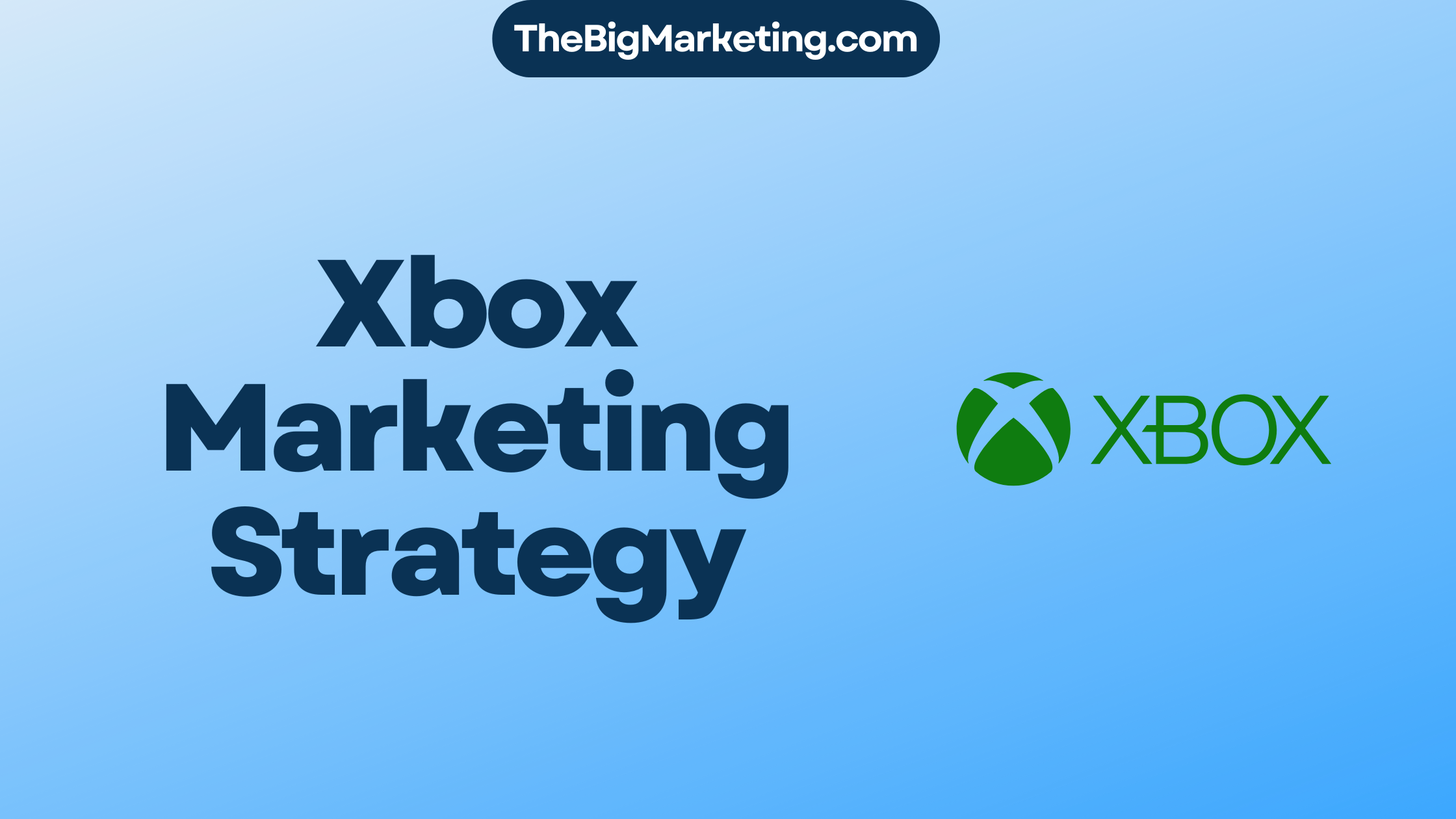Chipotle, founded by Steve Ells in 1993, has become known for its fresh and healthy fast-casual Mexican food. The brand has a strong focus on its target market, which includes college students and young professionals aged 18-30, who are looking for quick and nutritious meals. Chipotle’s marketing mix includes a unique product strategy that offers customizable burritos and bowls made with high-quality ingredients. The brand uses value pricing and has a presence in over 1,700 locations. Chipotle’s marketing strategy relies heavily on digital marketing, social media engagement, and non-traditional advertising to create brand awareness and customer loyalty.
Key Takeaways:
- Chipotle focuses on its target market of college students and young professionals aged 18-30.
- The brand’s marketing mix includes unique product offerings and value pricing.
- Digital marketing, social media engagement, and non-traditional advertising are key elements of Chipotle’s marketing strategy.
- Chipotle’s commitment to quality ingredients and sustainable practices resonates with its target market.
- The brand’s success is driven by its strong brand loyalty and consistent delivery on its brand promise.
Target Market of Chipotle
Chipotle has strategically established its ideal target market, focusing on college students and millennials aged 18-30. This particular demographic consists of urban dwellers who prioritize both convenience and health in their food options. With a strong health-consciousness, these customers value quality ingredients and are willing to pay a premium for a superior dining experience.
The core philosophy of Chipotle, known as “Food with Integrity,” perfectly aligns with the values of this target market. College students and millennials are well-educated about well-balanced diets and are passionate supporters of sustainable food practices. As a result, Chipotle’s commitment to providing nutritious and sustainable meals resonates deeply with them.
By catering to the needs and preferences of college students and millennials, Chipotle has garnered a loyal following within this demographic. Customers view Chipotle as their go-to choice for quick, convenient, and wholesome meals.
Characteristics of Chipotle’s Target Market
- College students and millennials aged 18-30
- Urban dwellers
- Seek quick and healthy food options
- Health-conscious
- Value quality ingredients
- Willing to pay a premium for a superior dining experience
Chipotle is well aware of the preferences and demands of its target market. The brand has successfully positioned itself as a trusted choice among college students and millennials seeking a convenient, nutritious, and sustainable dining experience.
Marketing Mix of Chipotle
Chipotle’s marketing mix incorporates a strategic approach to product strategy, price strategy, place strategy, and promotion strategy. With a focus on fresh and healthy ingredients, Chipotle has established its signature burrito as a standout product in the fast-casual dining industry. The brand further enhances customer satisfaction by offering customizable options, allowing individuals to tailor their meals to their preferences.
In terms of pricing, Chipotle employs a value pricing strategy. This approach ensures that the prices are competitive with other fast-casual restaurants, attracting budget-conscious customers while maintaining the brand’s commitment to quality and freshness.
Chipotle has a widespread presence, with over 1,700 locations across the United States, Canada, and Europe. This extensive distribution network allows the brand to reach a broad customer base while providing convenient access to its offerings.
When it comes to promotion, Chipotle sets itself apart by leveraging non-traditional advertising methods. Instead of relying solely on traditional forms of advertising, Chipotle focuses on word-of-mouth marketing and social media engagement. The brand actively interacts with customers on platforms like Facebook, Twitter, and Instagram, facilitating two-way communication and building a sense of community around the brand. By embracing digital marketing and social media, Chipotle effectively promotes its products and engages with its target audience.
Chipotle’s Marketing Mix Strategies
| Marketing Mix Element | Description |
|---|---|
| Product Strategy | Focuses on fresh and healthy ingredients, offers customizable options |
| Price Strategy | Uses value pricing, comparable to other fast-casual restaurants |
| Place Strategy | Wide distribution network with 1,700+ locations in the U.S., Canada, and Europe |
| Promotion Strategy | Utilizes non-traditional advertising methods, emphasizes word-of-mouth marketing and social media engagement |
Digital Marketing Strategy of Chipotle
Chipotle is renowned for its robust digital marketing strategy, leveraging various social media platforms to engage with its target audience effectively. The brand maintains active profiles on popular platforms such as Facebook, Twitter, Instagram, and YouTube, allowing it to connect with its customers and amplify its brand presence in the digital realm.
Chipotle’s digital marketing strategy primarily revolves around creating relevant and entertaining content that resonates with its target audience, particularly millennials. The brand’s social media posts embody a witty and relatable tone, seamlessly incorporating the latest trends and lingo to captivate and engage its followers.
One of Chipotle’s notable achievements in content marketing is its “Cultivating Thought Campaign.” This initiative involves featuring original essays and short stories by renowned authors on its packaging, providing customers with a thought-provoking and engaging experience.
Furthermore, Chipotle has ventured into content creation through its original show series on YouTube. By producing compelling and entertaining content related to its brand values and offerings, Chipotle aims to provide value to its customers while strengthening its online presence.
Chipotle’s Social Media Engagement
Chipotle’s digital marketing strategy extends beyond content creation to active social media engagement. The brand actively interacts with its followers and responds to comments and inquiries, fostering a sense of community and building trust with its audience.
Through social media, Chipotle also keeps customers updated on new menu items, limited-time promotions, and community initiatives, further strengthening its brand-customer relationship.
Measuring Success
In addition to their creative content and social media efforts, Chipotle utilizes various digital analytics tools to measure the success of their digital marketing activities. They monitor metrics such as engagement rate, click-through rate, and overall reach to gauge the effectiveness of their campaigns and make data-driven decisions to optimize their strategies.
| Metric | Description |
|---|---|
| Engagement Rate | The percentage of social media followers who actively engage with Chipotle’s content, including likes, comments, and shares. |
| Click-Through Rate | The percentage of users who click on a link or call-to-action in Chipotle’s digital marketing campaigns, indicating their interest and intent to engage further. |
| Reach | The total number of unique individuals who are exposed to Chipotle’s digital marketing content, providing insights into the brand’s overall visibility and potential audience. |
By staying active and engaging on digital channels, Chipotle effectively enhances its brand awareness, connects with its customers, and reinforces its position as a leader in the fast-casual dining industry.
Hosting Festivals and Events
Chipotle understands the power of experiential marketing and actively organizes festivals and events as part of its marketing strategy. Among these events, the Cultivate Festival stands out as a notable highlight. The Cultivate Festival is a series of festivals held in cities across America, where Chipotle showcases its commitment to sustainable and responsible food practices.
These festivals offer attendees a unique experience, combining celebrity chef demonstrations, interactive exhibits, and live music. The focus of the Cultivate Festival is to educate participants about organic food resources and the importance of making informed food choices. By promoting the values of sustainability and supporting local farmers and suppliers, Chipotle aims to create a positive brand perception among festival-goers and beyond.
Image:
The Cultivate Festival has garnered significant media coverage and has become a platform for Chipotle to connect with its target audience. Through engaging and memorable experiences, the brand reinforces its position as a leader in serving fresh and responsibly sourced ingredients.
By hosting festivals and events, Chipotle goes beyond traditional marketing methods to establish meaningful connections with its customers. These immersive experiences not only create positive brand associations but also reinforce Chipotle’s commitment to sustainability and responsible food practices.
Competition Attracts Customers
Chipotle has found a unique way to engage and attract customers through the power of competition. The brand regularly organizes contests and promotions that encourage customer participation and excitement. These contests take various forms, including submitting haikus and participating in matching games, offering participants the chance to win enticing prizes such as free burritos or exclusive discounts.
By leveraging the competitive nature of millennials and other target customers, Chipotle is able to increase brand awareness and foster loyalty. These contests not only generate buzz and engagement but also encourage customers to interact with the brand on social media platforms, further enhancing their connection with the Chipotle community.
The power of competition lies in its ability to captivate and inspire individuals to showcase their creativity, wit, and skills. By providing an interactive platform that taps into customers’ competitive spirit, Chipotle strengthens its connection with its audience and elevates the overall brand experience.
Whether it’s a poetry contest or a challenging game, Chipotle’s competitions create a sense of excitement and anticipation, driving customer engagement and reinforcing the brand’s position as a leading fast-casual dining choice. Through these social competitions, Chipotle not only rewards its dedicated customers but also expands its reach and attracts new patrons who are enticed by the prospect of friendly competition and delicious rewards.
Consistency is the Secret Ingredient
One key aspect of Chipotle’s marketing strategy is maintaining consistency across all aspects of its brand. Chipotle understands the importance of delivering a cohesive and reliable brand experience to its customers. From the tone of voice in its social media captions to the quality of its ingredients, Chipotle strives to uphold its brand promise and create a consistent brand identity.
Delivering the Same Message
Chipotle ensures brand consistency by delivering the same message across all its marketing channels. Whether it’s through social media posts, website content, or traditional advertising, the brand maintains a consistent tone and style of communication. This helps build brand recognition and reinforces Chipotle’s unique value proposition.
Quality at Every Step
In addition to communication, Chipotle maintains consistency in the quality of its ingredients and food preparation. The brand’s commitment to sourcing fresh and sustainable ingredients is evident in every burrito and bowl it serves. Customers can expect the same level of taste, freshness, and quality regardless of which Chipotle location they visit.
Building Loyalty through Consistency
Chipotle’s consistency has played a vital role in building strong brand loyalty. Despite facing challenges such as an E. coli breakout in 2015, the brand’s loyal customers continued to support and trust Chipotle. This demonstrated the deep bond between the brand and its customers, who appreciated the transparency and actions taken to address the issue.
Maintaining Consistency Across Brand Touchpoints
| Brand Touchpoints | Consistency Measures |
|---|---|
| Social Media | Consistent tone of voice, engaging content, regular updates |
| Menu | Consistent ingredient quality, customizable options, signature dishes |
| Store Experience | Clean and inviting ambiance, efficient service, consistent food preparation |
| Online Ordering | Seamless user experience, accurate order fulfillment, reliable delivery |
By consistently delivering on its brand promise and maintaining high standards across all brand touchpoints, Chipotle has earned the trust and loyalty of its customer base. Customers know that they can rely on Chipotle to provide them with a consistently enjoyable dining experience.
Chipotle Goes Public
In 2006, Chipotle made its initial public offering (IPO) and became a publicly traded company. The IPO was a resounding success, with Chipotle’s stock price doubling on its first day of trading. This successful IPO solidified Chipotle’s position as a major player in the fast-casual dining industry and provided the capital needed for further expansion and growth. Going public allowed Chipotle to attract a wider range of investors and increased its visibility in the stock market.
By going public, Chipotle opened up new avenues for growth and financial stability. The IPO generated significant interest from investors, resulting in a surge in stock price that demonstrated the market’s confidence in the brand and its future prospects. The increased capital infusion enabled Chipotle to expand its operations, open new locations, and continue innovating its menu offerings.
Being a publicly traded company also gave Chipotle access to a broader investor base, including institutional investors and individual shareholders. This increased investor diversity not only strengthened the company’s financial position but also helped solidify its reputation and visibility within the stock market.
Chipotle’s successful transition to a publicly traded company showcased its ability to attract investors and its potential for long-term growth. The confidence of the market in Chipotle’s brand, business model, and financial prospects further solidified the company’s position as a leader in the fast-casual dining industry.
The Birth of a Burrito Empire
Chipotle’s journey from its humble beginnings in 1993 to becoming a household name is a testament to its success as a fast-casual chain. Founded by Steve Ells, Chipotle started as a small burrito store in Denver, Colorado. With a focus on high-quality ingredients and customizable menu options, Chipotle quickly gained popularity and expanded its reach.
The brand’s growth was fueled by strategic partnerships, such as an investment from McDonald’s, as well as a strong emphasis on customer satisfaction and brand integrity. Chipotle’s commitment to providing fresh, healthy, and delicious food has helped it become a dominant player in the Mexican fast-casual market.
Expansion and Growth
After its initial success in Denver, Chipotle started to expand rapidly. By 1998, the brand had opened 16 additional locations in Colorado. The following year, McDonald’s, recognizing the potential of Chipotle’s concept, invested in the company. This partnership provided the necessary resources for Chipotle to further expand its presence across the United States.
Over the next decade, Chipotle experienced tremendous growth, increasing its number of locations and expanding into new markets. By 2005, the brand had opened its 500th location, solidifying its position as a major player in the fast-casual dining industry.
Brand Integrity and Customer Satisfaction
Throughout its history, Chipotle has maintained a strong commitment to brand integrity and customer satisfaction. The brand’s emphasis on using high-quality ingredients, such as responsibly sourced meats and fresh produce, has resonated with health-conscious consumers looking for a healthier dining option.
Furthermore, Chipotle’s focus on customization has allowed customers to tailor their meals to their preferences, ensuring a personalized dining experience. This commitment to customer satisfaction has contributed to the brand’s loyal customer base and continued success.
The Rise of a Fast-Casual Giant
Today, Chipotle has become a giant in the fast-casual dining industry, with thousands of locations worldwide. The brand’s success can be attributed to its dedication to providing fresh and sustainable food, strategic partnerships, and a focus on customer satisfaction.
As Chipotle continues to innovate, expand, and adapt to changing consumer preferences, its origin story remains a testament to the power of a compelling concept, strong brand values, and a commitment to delivering a superior dining experience.
Chipotle’s Success: Food With Integrity
One of the key factors contributing to Chipotle’s success is its commitment to food with integrity. The brand sources its ingredients from farms rather than factories and strives to use natural and sustainable practices. Chipotle’s focus on quality and sustainability resonates with its target market, who value healthy and responsible food options. By aligning its brand values with those of its customers, Chipotle has been able to build a strong and loyal customer base. The brand’s emphasis on food with integrity sets it apart from competitors and reinforces its position as a leader in the fast-casual dining industry.
Conclusion
Chipotle’s marketing strategy has positioned the brand as a leader in the fast-casual dining industry, with tremendous success. By implementing targeted marketing initiatives, offering a unique product experience, and establishing a strong online presence, Chipotle has successfully attracted and retained a loyal customer base. The brand’s commitment to quality, sustainability, and customer engagement has set it apart from competitors, creating a distinct brand identity.
Chipotle’s achievements serve as a compelling case study for effective marketing strategies in the food industry. The brand’s success can be attributed to its deep understanding of the target market’s preferences and values, and its ability to deliver on those expectations consistently. By staying true to its core brand values and focusing on the customer experience, Chipotle has established a strong and enduring position in the market.
Chipotle’s journey is a testament to the power of well-executed marketing strategies. Through meticulous planning and execution, the brand has achieved remarkable success and built a loyal following. As a result, Chipotle’s marketing strategy case study serves as an inspiration for other food industry players looking to differentiate themselves and create a lasting impact in their respective markets.
FAQ
What is Chipotle’s target market?
Chipotle’s target market consists of college students and millennials aged 18-30 who are health-conscious and looking for quick and healthy food options.
What is Chipotle’s product strategy?
Chipotle’s product strategy revolves around offering customizable burritos and bowls made with high-quality ingredients.
How does Chipotle price its products?
Chipotle uses a value pricing strategy, with prices comparable to other fast-casual restaurants.
Where can I find Chipotle locations?
Chipotle has over 1,700 locations in the U.S., Canada, and Europe.
How does Chipotle promote its brand?
Chipotle focuses on non-traditional advertising methods, such as word-of-mouth marketing, social media engagement, and content marketing.
What is Chipotle’s digital marketing strategy?
Chipotle maintains active profiles on popular social media platforms and engages with its target audience through relevant and entertaining content.
Does Chipotle host any festivals or events?
Yes, Chipotle organizes the Cultivate Festival, a series of festivals held in cities across America, featuring celebrity chef demonstrations and promoting organic food resources.
Does Chipotle have any competitions or contests?
Yes, Chipotle runs contests and promotions that encourage customer participation and engagement, offering prizes such as free burritos or discounts.
How does Chipotle maintain brand consistency?
Chipotle strives to deliver a consistent and cohesive brand experience across all aspects, from its tone of voice in social media to the quality of its ingredients.
Is Chipotle a publicly traded company?
Yes, Chipotle became a publicly traded company in 2006 after a successful initial public offering (IPO).
What is Chipotle’s approach to food with integrity?
Chipotle sources its ingredients from farms and emphasizes natural and sustainable practices in its food sourcing and preparation.







